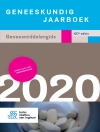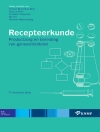This book provides an overview of Data Monitoring Committees(DMC) – what was done in the past, what is currently being done, and thoughts on improvements for the future. Previous works focused primarily on large cardiovascular studies (where DMCs originated more than 30 years ago) but updated references are needed that discuss smaller, more flexible studies in areas such as oncology. The authors have attended ~800 DMC meetings from ~200 distinct studies across all areas of clinical studies (oncology, rheumatology, rare diseases, cardiology, immunology, etc.) This wide range of expertise will be used, as well as the expertise that comes from working with virtually every large biotechnology and pharmaceutical company and CRO for DMC work. The reader of the book will know when DMCs are needed or helpful, how to form the DMC, how to work with external CROs and with sponsor teams and the DMC to create needed DMC outputs, how the DMC meetings are conducted, and – especially for DMC members – what are considerations within the Closed Session to review safety/efficacy outputs to assess risk/benefit to make appropriate recommendations that protect the patient safety and trial integrity.
This book provides the following:
- Provides thorough instructions on the steps needed to form and implement a Data Monitoring Committee for clinical trial evaluation;
- Includes practical and hands-on information on DMC implementation;
- Discusses a wide range of clinical trial – by phase and therapeutic area.
विषयसूची
Introduction-.What is a DMC?-. Is a DMC required?-. Who is On the DMC?-. What are the Legal and Ethical Aspects of DMC?-. How does the DMC work with SDAC and Sponsor and External Groups ?.- What Does a DMC Meeting Look Like.- What data is used for DMC outputs and who programs?.- What is Included in DMC Outputs?.- What does the DMC final DMC outputs look like and how is it delivered?.- What Types of Safety Outputs Does the DMC Receive?.- What types of efficacy outputs does the DMC receive?.- What types of other outputs does the DMC receive?.- What About In-Between DMC Meetings.- What types of formal interim analyses does the DMC review?.- What does the paperwork from meetings look like?.- How does the DMC assess risk-benefit for their decision making?.- What are some examples?.- Conclusions.
लेखक के बारे में
Dr. Nand Kishore Rawat
Dr. Rawat has 18 years of experience working in the Biostatistics domain at various pharmaceutical companies (BMS, Novartis and Sun Pharmaceutical) and at Clinical Research Organizations (Cytel and Accutest). Dr. Rawat primarily worked on Early phase clinical trials and led the Early phase division at Cytel. Prior to Lantheus, he worked at Cytel for the 9 years in the scientific leadership and strategic management role in the Early phase as well as Data Monitoring Committees (DMCs). He is a strong advocate for process improvements and has presented at several international conferences. He has a Ph.D. in Statistics and has six publications and one book published in his credit. Currently he is working in the capacity of Director, Biostatistics at Lantheus and providing leadership, strategic direction, and oversight to Biometrics Department globally.
David Kerr
David Kerr received his Master’s in Statistics from the University of Washington and has worked at Axio Research, now part of Cytel, in Seattle for the past 27 years. He currently holds the title of Director of DMC Services where he provides leadership, direction, and oversight for DMC services provided by Axio/Cytel- which facilitates approximately 400 DMC meetings per year. He was instrumental in developing Axio/Cytel’s SOPs which govern the company’s DMC Services.
In addition to his duties as Director of DMC Services, David has himself provided statistical support as the reporting statistician for more than 175 DMCs covering 250 individual clinical trials, with particular emphasis in disease areas such as oncology, cardiology, infectious disease, respiratory disease, and rheumatology. He has personally attended over 750 DMC meetings and seen a wide variety of situations from those experiences. He is a strong advocate for improvements in the DMC process and has presented at many conferences, as well as given tutorials to industry. His goal is to make sure the DMC has the best information available to help them make educated recommendations for the success of the trial and the protection of the study participants.












